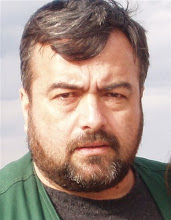 After graduating with a 1st in Electrical Engineering from Leeds University in 1950, he pursued postgraduate studies at Imperial College. The research was concerned with servomechanisms and the then new work on time series analysis strongly influenced his future career.
After graduating with a 1st in Electrical Engineering from Leeds University in 1950, he pursued postgraduate studies at Imperial College. The research was concerned with servomechanisms and the then new work on time series analysis strongly influenced his future career.In 1952, he joined ICI as an instrument and electrical engineer. The Billingham plants at that time employed 20,000 people and processed many kinds of raw material. Maurice designed and maintained complex electronic systems for use in the extremely hostile on-site environment. In 1963 he moved to Bradford University to set up a new course: ‘Automation in Chemical Engineering’, and researched into the problems concerning measurement and control for processes handling difficult fluids, an endemic problem in his previous job. This progressed into an extensive programme of work on cross-correlation flowmeters and he was awarded his PhD in 1969, on the basis of this research. The textbook he wrote on the subject, (in collaboration with Andrzej Plaskowski) is well known to a generation of students.
In 1980, he became one of the founding professors of the new Department of Instrumentation and Analytical Science at UMIST. Here the research proceeded on a wider front, and in the mid-1980’s he became interested in using tomographic techniques to image process vessels and pipelines in order to obtain detailed information for design, measurement and control of multiphase processes. The differences from medical tomography soon became clear. Low-cost, safe, fast and highly sensitive tomographic sensors were required.
By 1989 a major effort was needed to develop process tomography to meet industrial needs. In that year Maurice Beck was awarded one of the few SERC Senior Fellowships so that he was able to work full-time on the subject. A Process Tomography Unit was set up in the Department of Electrical Engineering and Electronics at UMIST. This led to establishing a UK Process Tomography Group in 1990 and the foundation of a European Concerted Action in Process Tomography (ECAPT) in 1992. The UMIST group of 4 persons in 1990 soon expanded to a total of 30. ECAPT represented the output of 130 workers from over 40 groups (including 13 industrial groups) in 10 countries.
After its foundation in 1990 the UMIST group rapidly became world leaders in electrical tomography (using resistive, capacitive and inductive fields). The special features of high speed, low cost and safety attracted great interest in the form of research funding from many sources.
Maurice was a prodigious worker and this is reflected in his published output in the form of papers, books and edited conference proceedings. Although single minded in his enthusiasm for process tomography, he was never selfish. He was always ready to discuss ideas and exchange information in a way that, in the current climate, would not sit comfortably with the would-be exploiters of IPR. Nevertheless, he had an acute sense of the industrial need for technology transfer and was instrumental in setting up a commercial company to produce electrical tomographic systems. Undoubtedly, some other workers were able to capitalise on ideas gained through Maurice, but he felt that the excursions of the swings and roundabouts benefited him as well. His over-riding concern was that the subject should go forward and progress made.
Nor did his huge enthusiasm for process tomography mean that he neglected other aspects of his life. Home construction projects with his children, holidays in the caravan with his grandchildren, no one was left out. In later life, he took up jogging and, in his 60’s, took part in four London Marathons. More the tortoise than the hare, he always completed the course.
Maurice was held in the highest esteem by his peers and was awarded many honours and distinctions by professional and national institutions. In the technical world, he will be remembered as the Father of Process Tomography. To those of us who knew him well, he will be remembered as a kind generous and thoughtful gentleman, whose warm spirit and gifted leadership made us all feel proud to have known him.

Δεν υπάρχουν σχόλια:
Δημοσίευση σχολίου